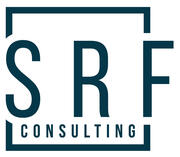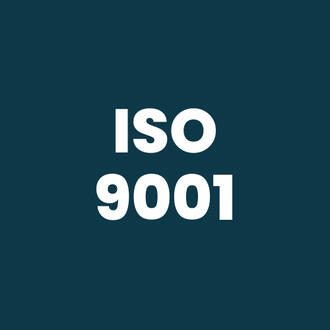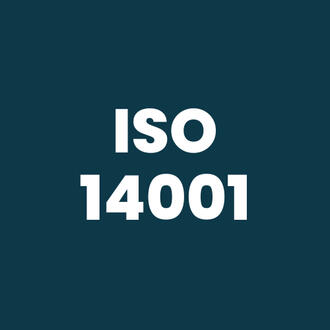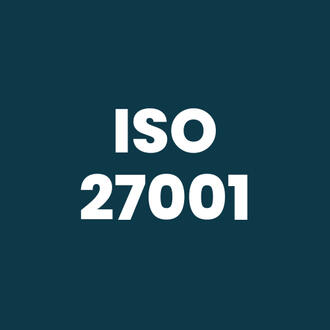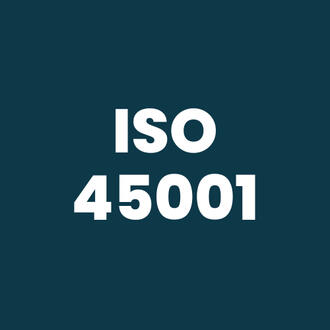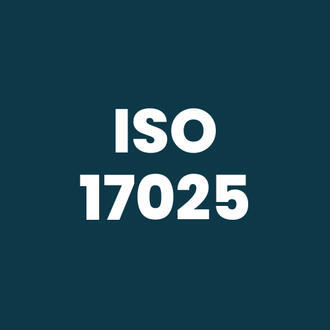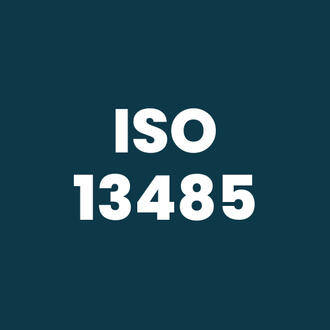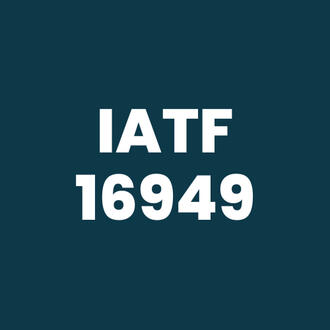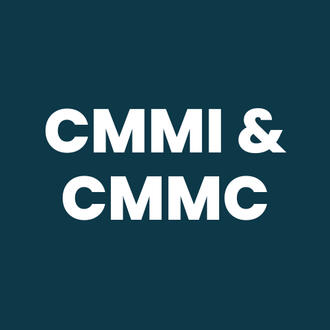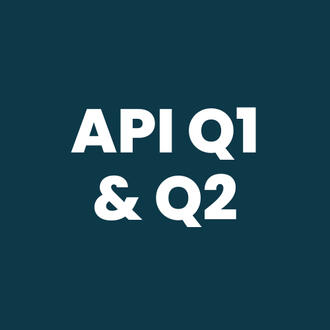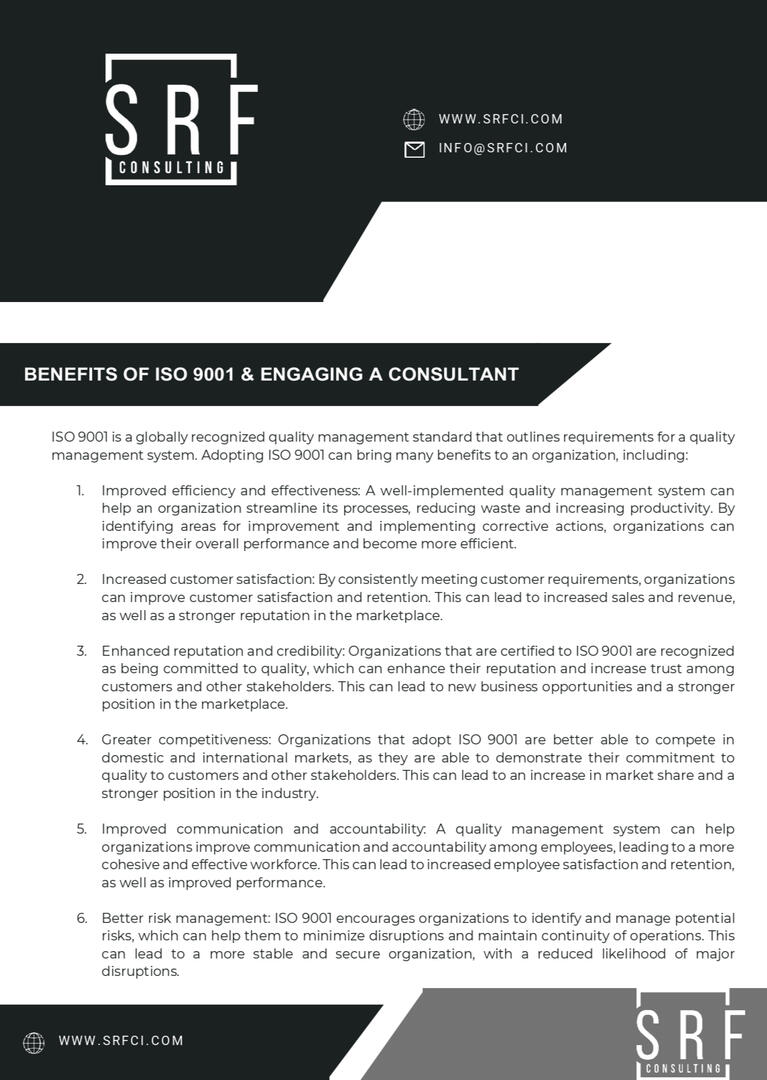SRF Consulting
ISO and Management System Consultants
Standards we consult on:
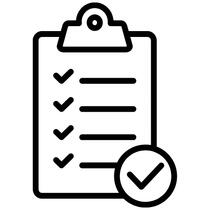
Gap Analysis
At SRF Consulting, our Gap Analysis service is designed to help organizations identify any gaps...

Customized Consulting
Our Customized Consulting and Management System Development service is designed to help...

Internal Audits
Our Internal Audit service is designed to help organizations evaluate the effectiveness of...

ABOUT US
Developing and implementing a management system to achieve ISO certification can seem confusing and overwhelming. Working with an experienced consultant can save you time, effort, and resources. Our team of experienced management system consultants take a customized approach and have a 100% success rate in helping organizations develop and implement an effective management system to achieve ISO certification, the first time. We provide expert guidance and support every step of the way, ensuring that your organization is fully prepared for the ISO certification process and achieve certification as quickly as possible.Our goal is to ensure you have an effective, efficient, and fully integrated management system that meets the requirements of internationally recognized management system standards.Our team has a combined experience of over 20 years in the field of quality, environmental, safety and information security management systems. We have worked with companies in a variety of industries, including manufacturing, chemical processing, government contracting, agricultural and food, healthcare, and technology.We understand that implementing ISO standards can seem overwhelming, but we are here to make the process as smooth and hassle-free as possible. Our team will work closely with you to assess your business's needs and develop a customized plan to help you achieve and maintain certification.Thank you for considering SRF Consulting for your management system and certification preparation needs. We look forward to working with you!
articles
TESTIMONIALS

We very much recommend Trenton's consultation expertise in compliance! Trenton helped us, not only completely build out our company Quality Management System, but also understand the practices for ISO 9001 compliance standard. We decided to pursue CMMI SVC Level 3, as well as ISO 27001 concurrently with ISO 9001. Trenton was our lead consultant for ISO 9001; however, he stepped in and helped us.
- Jenika D.

Trenton's approach to ISO certification is smart, concise and fit for purpose. Trenton, the utmost professional, took the time to not only understand yet also appreciate the nuances of our company and built this into our quality management system. Trenton provided advice that was fit for purpose that did not leave us bogged down in paperwork or redundant meetings each month.
- Andrew W.

Trenton greatly assisted our effort to create and customize a quality framework and implementation that was right sized for our organization and met the ISO standard. He brought a balance of confidence, humility, and detailed knowledge of the ISO requirements. In short order, he demonstrated his possession of quality insights and ability to weave together.
- Scott B.

I have worked with Trenton for many years now & have always found him to be great to work with and someone I can rely on to ensure my business is operating to all relevant codes & standards. If you as a prospective client of Trenton's have any blind spots in your compliance, I would urge you to engage his services & enjoy the results of a finely tuned business.
- Benjamin S.
Contact Us
Ready for some help? Reach out to discuss your needs and obtain a quote.
Gap Analysis
At SRF Consulting, our Gap Analysis service is designed to help organizations identify any gaps in their current processes and systems that may prevent them from meeting the requirements of an ISO or other management system standard. By performing a gap analysis, we can provide a clear understanding of what needs to be done to ensure that your organization is fully prepared for the ISO certification process.
The benefits of our Gap Analysis service include:
Identifying areas of improvement: Our gap analysis will identify any areas where your organization's processes and systems fall short of the requirements of the ISO or other management system standard, allowing you to focus your efforts on the most important areas for improvement.
Streamlining the certification process: By identifying and addressing potential gaps before the certification process, you can save time and reduce the risk of delays or setbacks during the certification process.
Cost savings: By identifying and addressing potential gaps early on, you can save resources that might otherwise be wasted on non-conforming processes or systems.
The process of our Gap Analysis service includes:
Initial consultation: Let’s figure out where you’re at. We’ll begin by discussing your organization's needs and goals to get a clear understanding of your situation.
On-site or remote assessment: Our team of experienced ISO consultants will visit and/or meet with your team to perform an in-depth assessment of your processes and systems.
Gap analysis report: After the assessment, we will provide you with a detailed gap analysis report that outlines any areas where your organization falls short of the requirements of the ISO standard.
Recommendations: In addition to the gap analysis findings, we will also provide specific recommendations on how to address any findings and close any gaps.
By working with our team of ISO consultants, you can be confident that you will not only receive the gap analysis findings, but also receive specific recommendations to address any findings and achieve a successful ISO certification.
Customized Consulting and Management System Development
Our Customized Consulting and Management System Development service is designed to help organizations formalize and develop a management system that meets the requirements of the desired ISO or other management system standard. Our team of experienced ISO consultants work closely with you to understand your processes and systems, and help you develop a management system that is tailored to your specific needs and goals.
The benefits of our Customized Consulting and Management System Development service include:
Expert guidance: Our team of experienced ISO consultants have extensive experience helping organizations develop and implement management systems that meet the requirements of various ISO standards and other management system standards. We provide expert guidance and support every step of the way.
Customized solutions: We understand that every organization is unique, and so we work with you to develop a management system that is tailored to the specific needs and goals of your organization. Efficient, effective and fully integrated is the expectation.
Increased efficiency: A well-developed management system can help streamline your processes and improve efficiency within your organization.
The process of our Customized Consulting and Management System Development service includes:
Initial consultation and training: Let’s get you ready for the project by providing some training for you and the team before we jump in and see where you’re currently at. We’ll review and discuss your organization's needs and goals to get a clear understanding of your situation and determine the best approach or path forward.
Management system development: A dedicated consultant will work with you to understand your processes and systems and help you develop a management system that meets the requirements of the desired ISO standard or other management system standard.
Training and implementation: We will provide ongoing training and support throughout the project to help you implement the management system within your organization.
Certification audit preparation: We will work with you to ensure that your organization is fully prepared for the certification audit.
By working with our ISO consultants, you can be confident that you will receive the expert guidance and support you need to develop and implement a management system that meets the requirements of the desired ISO standard and helps you achieve a successful certification audit, the first time.
Internal Audits
Our Internal Audit service is designed to help organizations evaluate the effectiveness of their management systems and identify any areas for improvement. By performing an internal audit, we can provide a clear understanding of how well your organization is meeting the requirements of the desired ISO standard and help you identify any areas that may need to be addressed.
The benefits of our Internal Audit service include:
Identifying areas of improvement: Our internal audit will identify any areas where your organization's management system falls short of the requirements of the ISO or other management system standard, allowing you to focus your efforts on the most important areas for improvement.
Streamlining the certification process: By identifying and addressing potential issues before the certification or surveillance audit, you can save time and reduce the risk of delays or setbacks during the certification process.
Cost savings: By identifying and addressing potential issues early on, you can save resources that might otherwise be wasted on non-conforming processes or systems.
The process of our Internal Audit service includes:
Initial consultation: We’ll begin by reviewing the scope of the internal audit, discussing approach and preparing the team for the time together during the internal audit.
On-site or remote audit: Our team of experienced ISO consultants will visit and/or meet with your organization to perform an in-depth internal audit of your management system.
Audit report: After the audit, we will provide you with a detailed audit report that outlines any areas where your organization falls short of the requirements of the ISO standard.
Recommendations: In addition to the audit findings, we’ll also provide specific recommendations on how to address any issues and improve the effectiveness of your management system.
By working with our team of ISO consultants, you can be confident that you will receive a thorough internal audit and expert guidance on how to improve the effectiveness of your management system and achieve a successful certification/surveillance audit.
past articles
more testimonials

Trenton's approach to ISO certification is smart, concise and fit for purpose. Trenton, the utmost professional, took the time to not only understand yet also appreciate the nuances of our company and built this into our quality management system. Trenton provided advice that was fit for purpose that did not leave us bogged down in paperwork or redundant meetings each month.
- Andrew W.

We very much recommend Trenton's consultation expertise in compliance! Trenton helped us, not only completely build out our company Quality Management System, but also understand the practices for ISO 9001 compliance standard. We decided to pursue CMMI SVC Level 3, as well as ISO 27001 concurrently with ISO 9001. Trenton was our lead consultant for ISO 9001; however, he stepped in and helped us.
- Jenika D.

Trenton greatly assisted our effort to create and customize a quality framework and implementation that was right sized for our organization and met the ISO standard. He brought a balance of confidence, humility, and detailed knowledge of the ISO requirements. In short order, he demonstrated his possession of quality insights and ability to weave together.
- Scott B.

I have worked with Trenton for many years now & have always found him to be great to work with and someone I can rely on to ensure my business is operating to all relevant codes & standards. If you as a prospective client of Trenton's have any blind spots in your compliance, I would urge you to engage his services & enjoy the results of a finely tuned business.
- Benjamin S.
The Importance of ISO 14001 for Environmental Sustainability
ISO 14001 is an internationally recognized standard for environmental management systems (EMS). It provides a framework for organizations to systematically identify, manage, and control the environmental impacts of their operations. The standard helps organizations to continuously improve their environmental performance and comply with relevant laws and regulations.The need for environmental sustainability has never been more pressing. Climate change, deforestation, pollution, and loss of biodiversity are just some of the global challenges we face today. Organizations have a critical role to play in addressing these challenges, and ISO 14001 is one of the ways they can do so.ISO 14001 is based on the Plan-Do-Check-Act (PDCA) cycle, a continuous improvement process that helps organizations to identify and manage environmental risks, set and achieve environmental objectives, and measure and report on their performance. The standard covers a wide range of activities, including energy and resource management, waste management, and biodiversity conservation.Implementing an EMS based on ISO 14001 can bring numerous benefits to organizations. These include:
Improved environmental performance: An EMS based on ISO 14001 helps organizations to identify and control their environmental impacts and to continuously improve their performance. This can lead to cost savings, reduced environmental risks, and enhanced reputation and brand value.
Compliance with laws and regulations: An EMS based on ISO 14001 helps organizations to comply with relevant environmental laws and regulations and to avoid potential fines and penalties.
Better stakeholder engagement: An EMS based on ISO 14001 helps organizations to engage with their stakeholders and to understand and respond to their environmental concerns.
Improved risk management: An EMS based on ISO 14001 helps organizations to identify and manage environmental risks and to ensure the long-term sustainability of their operations.
Enhanced efficiency and resource conservation: An EMS based on ISO 14001 helps organizations to improve their efficiency and to conserve resources such as energy and water.
ISO 14001 certification is not mandatory, but it can provide organizations with additional benefits, such as:
Enhanced reputation and brand value: ISO 14001 certification demonstrates that an organization has a robust and effective EMS in place and is committed to environmental sustainability.
Improved competitiveness: ISO 14001 certification can give organizations a competitive advantage, especially in industries where environmental performance is a key factor in the selection of suppliers.
Increased market access: ISO 14001 certification can help organizations to access new markets, especially in sectors where environmental performance is a key requirement.
SRF Consulting is a leading ISO consulting company that helps organizations to develop and implement management systems that meet the requirements of ISO 14001 and other international standards. Our team of experts has extensive experience in the implementation of EMSs and can provide a wide range of services, including:
Gap analysis: We can help organizations to identify the gaps between their current environmental performance and the requirements of ISO 14001 and to develop a plan to close those gaps.
Implementation: We can help organizations to implement an EMS based on ISO 14001, including the development of procedures, the training of staff, and the implementation of an environmental management program.
Certification: We can help organizations to achieve certification to ISO 14001, including the preparation for the certification audit, a readiness review for the audit, and the resolution of any nonconformities.
Auditing: We can provide internal audit services to help organizations to evaluate the effectiveness of their EMS and to identify opportunities for improvement.
Maintenance: We can provide ongoing support to help organizations to maintain their certification to ISO 14001 and to continuously improve their environmental performance.
In conclusion, ISO 14001 is a critical standard for organizations that are committed to environmental sustainability. It provides a framework for organizations to systematically identify, manage, and control the environmental impacts of their operations, and helps them to continuously improve their environmental performance and comply with relevant laws and regulations. Implementing an EMS based on ISO 14001 can bring numerous benefits to organizations, including improved environmental performance, compliance with laws and regulations, better stakeholder engagement, improved risk management and enhanced efficiency and resource conservation.SRF Consulting is a leading ISO consulting company that can help businesses develop a management system to meet the requirements of ISO 14001 and achieve certification. Our team of experts has extensive experience in the implementation of EMSs and can provide a wide range of services including gap analysis, implementation, certification, auditing and maintenance. With SRF Consulting, organizations can confidently demonstrate their commitment to environmental sustainability, improve their competitiveness and gain access to new markets. Contact SRF Consulting today to learn more about how we can support your organization in achieving ISO 14001 certification.
11 Benefits of Implementing an ISO 9001 Quality Management System
If you're a business owner, you understand the importance of continuously improving your products, services, and processes. One effective way to do this is by implementing an ISO 9001 Quality Management System (QMS) (ISO, 2021). ISO 9001 is an internationally recognized standard that outlines the requirements for a QMS. It helps organizations ensure that they consistently meet customer and regulatory requirements while also striving for continuous improvement (ISO, 2021).But what exactly is an ISO 9001 QMS and why should you consider implementing it in your organization? A QMS is a systematic approach to managing an organization's processes in order to achieve customer satisfaction and continuous improvement (ISO, 2021). It includes the policies, procedures, and resources needed to implement and maintain the system (ISO, 2021).Implementing an ISO 9001 QMS requires a commitment from top management and a willingness to involve all employees in the process (ISO, 2021). It can be a significant undertaking, but the benefits far outweigh the effort. Here are 11 benefits that your organization can experience by adopting this standard:
Improved efficiency and effectiveness: An ISO 9001 QMS can help your organization identify and streamline processes, resulting in increased efficiency and effectiveness (ISO, 2021). This can translate into cost savings and improved productivity. By regularly reviewing and analyzing your processes, you can eliminate waste and inefficiencies, and focus on activities that add value for your customers (ISO, 2021).
Enhanced customer satisfaction: ISO 9001 places a strong emphasis on meeting customer requirements and exceeding customer expectations (ISO, 2021). By implementing this standard, you can demonstrate to your customers that you are committed to their satisfaction. By regularly soliciting and analyzing customer feedback, you can identify opportunities for improvement and take action to address any issues or concerns (ISO, 2021).
Increased competitiveness: An ISO 9001 QMS can give your organization a competitive edge in the marketplace (ISO, 2021). Customers often prefer doing business with companies that are ISO 9001 certified, as it shows a dedication to quality. In today's global business environment, customers have a wide range of options and are more likely to choose companies that they perceive as reliable and trustworthy (ISO, 2021).
Improved communication: ISO 9001 requires organizations to have effective internal and external communication processes in place (ISO, 2021). This can lead to better communication and collaboration within your organization. By establishing clear roles, responsibilities, and lines of communication, you can ensure that information is accurately and timely shared among all stakeholders (ISO, 2021).
More effective decision making: An ISO 9001 QMS promotes data-driven decision making and the use of metrics to track and measure performance (ISO, 2021). This can assist your organization in making more informed and effective decisions. By regularly collecting and analyzing data on your processes, you can identify trends and patterns, and make adjustments as needed to improve performance (ISO, 2021).
Enhanced employee morale: ISO 9001 emphasizes the value of involving employees in the QMS and empowering them to contribute to continuous improvement (ISO, 2021). This can result in increased employee engagement and morale. By involving employees in the decision-making process and providing them with the necessary resources and training, you can foster a culture of continuous learning and improvement (ISO, 2021).
Improved supplier relationships: ISO 9001 requires organizations to have effective processes for selecting and managing suppliers (ISO, 2021). This can lead to strengthened relationships with suppliers and a more efficient supply chain. By establishing clear criteria for evaluating and selecting suppliers, and regularly reviewing their performance, you can ensure that you are working with high-quality suppliers who meet your needs and expectations (ISO, 2021).
Reduced errors and rework: An ISO 9001 QMS helps organizations identify and prevent errors, leading to fewer mistakes and less rework (ISO, 2021). This can save your organization time and money. By identifying and addressing the root causes of errors, you can prevent them from occurring in the future (ISO, 2021).
Enhanced reputation: ISO 9001 certification can enhance your organization's reputation and credibility, as it demonstrates a commitment to quality and continuous improvement (ISO, 2021). In today's business environment, consumers are more conscious of the impact of their purchasing decisions on the environment and society (ISO, 2021). By demonstrating a commitment to sustainability and social responsibility, you can differentiate yourself from the competition and attract more socially conscious customers (ISO, 2021).
Simplified compliance with regulatory requirements: ISO 9001 can help your organization meet regulatory requirements by requiring you to have documented processes in place for managing quality (ISO, 2021). By following the requirements of the standard, you can ensure that you are meeting all relevant regulatory requirements (ISO, 2021).
Improved sustainability: ISO 9001 encourages organizations to consider the environmental and social impacts of their activities and to continuously improve their sustainability performance (ISO, 2021). By adopting an ISO 9001 QMS, you can improve your organization's sustainability performance in areas such as energy efficiency, waste reduction, and responsible sourcing (ISO, 2021).
Implementing an ISO 9001 QMS can bring numerous benefits to your organization. It can improve efficiency, enhance customer satisfaction, increase competitiveness, and more (ISO, 2021). If you're considering implementing this standard, it's essential to work with a reputable ISO consulting firm that can guide you through the process.The implementation of an ISO 9001 QMS can be a significant undertaking, but the benefits far outweigh the effort. By adopting this standard, your organization can improve its internal processes, enhance its reputation, and satisfy customer and regulatory requirements (ISO, 2021).References:
ISO (2021). ISO 9001:2015 - Quality management systems - Requirements. Retrieved from https://www.iso.org/standard/62085.html
ISO 45001: The Key to Improving Occupational Health and Safety in Your Company
The importance of occupational health and safety (OH&S) in the workplace cannot be overstated. Not only is it a legal requirement for employers to provide a safe and healthy working environment for their employees, but it also has a significant impact on the overall success and sustainability of a business. One way to ensure that a company is meeting the highest standards for OH&S is by implementing an ISO 45001 management system.ISO 45001 is an international standard that provides a framework for managing OH&S risks and hazards in the workplace. It is designed to help organizations identify and control these risks, while also promoting continuous improvement in OH&S performance. By implementing ISO 45001, a company can not only meet legal requirements, but also create a culture of safety within the organization.There are several key benefits to implementing an ISO 45001 management system in a company. The first is that it helps to identify, and control OH&S risks and hazards in the workplace. This can be done through regular risk assessments and the development of an OH&S management plan. The standard also requires organizations to establish measurable OH&S objectives, which can help to identify areas for improvement and track progress over time.Another key benefit of ISO 45001 is that it promotes continuous improvement in OH&S performance. This is achieved through regular internal and external audits, which help to identify areas for improvement and implement corrective actions. The standard also requires organizations to establish a process for incident investigation, which can help to identify the root cause of an incident and prevent it from happening again in the future.ISO 45001 also helps to create a culture of safety within an organization. By involving employees in the development and implementation of the OH&S management system, they are more likely to take ownership of their own safety and the safety of their colleagues. This can lead to increased engagement and a greater sense of responsibility for OH&S in the workplace.In addition to these benefits, ISO 45001 certification can also be beneficial for a company from a business perspective. By demonstrating a commitment to OH&S through certification, a company can improve its reputation and gain a competitive advantage in the marketplace. It can also provide a company with a framework for meeting the OH&S requirements of customers, suppliers and other stakeholders.The Leadership team are a key component of an effective OH&S management system and are legally required to ensure a safe and healthy work environment for their employees. ISO 45001 requires that top leadership demonstrate a commitment to OH&S by setting and communicating the OH&S Policy, allocating resources, implementing processes into the operations of the business and providing direction for the OH&S management system.Therefore, communication is a critical component of an effective OH&S management system so that employees understand their role, expectations and commitments from management and of themselves, resources available to employees and processes for the reporting of unsafe situations or incidents. ISO 45001 requires that organizations develop and implement processes for effective communication across the organization. Companies need to consider the need for both internal and external communication and effective processes for this communication.Implementing an OH&S management system does not guarantee that an organization will have less injuries or illnesses, however that is the intent and expectation when implemented effectively. By implementing an effective OH&S management system and achieving ISO 45001 certification, this should improve the safety for employees and others in the workplace but also have a positive impact on the overall performance of the business. For example, by reducing incidents and illnesses, companies should reduce lost time and costs associated with employee injuries and illnesses.SRF Consulting can help businesses develop a management system to meet the requirements of ISO 45001 and support the client in achieving certification. Our team of experts has extensive experience in implementing OH&S management systems and can provide guidance and support throughout the certification process. We can help to identify and control OH&S risks and hazards, establish measurable OH&S objectives, and develop an OH&S management plan that is tailored to the specific needs of your organization.In addition, we can provide training and support for employees, so they understand the requirements of the standard and are able to actively participate in the implementation and ongoing management of the OH&S management system. We can also provide internal and external auditing services to ensure that the system is working effectively and identify areas for improvement.In conclusion, ISO 45001 is a powerful tool for improving OH&S in the workplace. By implementing an ISO 45001 management system, a company can not only meet legal requirements but also create a culture of safety within the organization, promoting continuous improvement in OH&S performance. SRF Consulting is here to help businesses in this process, and make it as smooth as possible for the company.
Navigating ISO 27001: The Standard for Information Security Management
Information security is a vital aspect of any organization, and the ISO 27001 standard is a globally recognized framework for ensuring that information security management systems (ISMS) are robust and effective. ISO 27001 provides a set of guidelines and requirements for managing sensitive information and protecting it from unauthorized access, disclosure, disruption, modification, or destruction. In this article, we will discuss the key elements of ISO 27001 and how businesses can develop a management system to meet its requirements and achieve certification.The ISO 27001 standard is divided into several sections, including the introduction, scope, normative references, terms and definitions, and the ISMS requirements. The ISMS requirements are further divided into four main clauses, each addressing different aspects of information security management. The four clauses are:Clause 4: Context of the Organization – This clause requires organizations to determine the internal and external factors that may affect their information security and to establish the scope of their ISMS.Clause 5: Leadership – This clause requires organizations to establish a leadership framework for information security management and to appoint a senior management representative to take responsibility for the ISMS.Clause 6: Planning – This clause requires organizations to develop a risk management strategy, identify risks to their information security, and implement controls to mitigate these risks.Clause 7: Support – This clause requires organizations to establish the necessary resources, processes, and procedures to support the ISMS and to ensure that all employees are aware of their roles and responsibilities regarding information security.Clause 8: Operation – This clause requires organizations to implement their information security controls and to monitor, measure, and evaluate their performance.Clause 9: Performance Evaluation – This clause requires organizations to monitor and measure the effectiveness of their ISMS and to review and evaluate their information security risks.Clause 10: Improvement – This clause requires organizations to take corrective and preventive actions to address any issues identified in the ISMS and to continually improve the effectiveness of their information security management.ISO 27001:2013 contains 114 security controls in the appendix of the Standard, which are divided into 14 control categories. These controls are designed to provide a comprehensive yet flexible framework for managing information security risks. The 14 control categories are:
Access control: This category covers controls for managing who has access to sensitive information and the conditions under which that access is granted.
Asset management: This category covers controls for identifying, classifying, and protecting the organization's information assets.
Business continuity management: This category covers controls for planning and implementing procedures to ensure that the organization can continue to operate in the event of a disaster or major disruption.
Compliance: This category covers controls for ensuring that the organization complies with relevant laws, regulations, and standards.
Cryptography: This category covers controls for protecting information using cryptographic techniques.
Human resources security: This category covers controls for ensuring that employees are aware of their roles and responsibilities regarding information security.
Incident management: This category covers controls for detecting, reporting, and responding to security incidents.
Information security governance: This category covers controls for establishing and maintaining a governance framework for information security.
Information security management: This category covers controls for planning and implementing an information security management system.
Information security risk management: This category covers controls for identifying, assessing, and managing information security risks.
Physical and environmental security: This category covers controls for protecting the organization's physical assets and premises.
Security architecture and design: This category covers controls for designing and implementing secure systems and networks.
Security operations: This category covers controls for managing and monitoring the security of the organization's systems and networks.
Supplier relationships: This category covers controls for managing the security of the organization's relationships with suppliers and service providers.
These controls are designed to be flexible and adaptable to the unique needs of different organizations. They can be implemented in a variety of ways and are not prescriptive in nature. Therefore, the organization can choose the controls that are most appropriate for its specific context, taking into account its legal, regulatory and contractual requirements, the sensitivity of the data it processes, the risks it faces, and the level of maturity of its existing information security management system.Achieving certification to ISO 27001 requires organizations to demonstrate that their ISMS meets all the requirements of the standard. The certification process typically involves an assessment by an accredited third-party auditor, who will review the organization's ISMS documentation and conduct on-site audits to verify that the ISMS is operating as it should.SRF Consulting, a leading ISO consulting company can help businesses develop a management system to meet the requirements of ISO 27001 and support the client in achieving certification. Our team of experienced consultants has a deep understanding of the ISO 27001 standard and can provide a range of services to support businesses in their journey to certification.We offer gap analysis services to help businesses identify any areas where their existing ISMS falls short of the ISO 27001 requirements. We also provide ISMS documentation development services, to help businesses create the necessary policies, procedures, and records to demonstrate compliance with the standard.Our consultants can also provide on-site support to guide businesses through the certification process, including preparing for the assessment and providing guidance on how to address any non-conformities identified during the assessment.In conclusion, ISO 27001 is a globally recognized standard for information security management that provides a framework for ensuring that sensitive information is protected from unauthorized access, disclosure, disruption, modification, or destruction. Achieving certification to ISO 27001 requires organizations to demonstrate that their ISMS meets all the requirements of the standard. SRF Consulting can help businesses develop a management system to meet the requirements of ISO 27001 and support the client in achieving certification. With our team of experienced consultants, we can provide a range of services to support businesses in their journey and path to ISO 27001 certification.
5 Steps to Achieving ISO 9001 Certification for Your Business
ISO 9001 is a globally recognized quality management standard that outlines requirements for a quality management system. Achieving certification to ISO 9001 can bring many benefits to a business, including improved efficiency and effectiveness, increased customer satisfaction, and enhanced reputation and credibility. Here are 5 steps to help your business achieve ISO 9001 certification:
Understand the requirements of the standard: The first step to achieving certification is to understand the requirements of the standard. This includes reading and studying the ISO 9001 standard and identifying how it applies to your business. It is also important to understand the specific requirements of your chosen certification body.
Conduct a gap analysis: Once you have a good understanding of the requirements of the standard, it is important to conduct a gap analysis to identify any areas where your current quality management system does not meet the requirements of the standard. This will help you to prioritize the areas that need to be addressed.
Develop a quality management system: Based on the results of the gap analysis, you will need to develop a quality management system that addresses the areas identified. This may involve creating or updating policies, procedures, and forms, as well as providing training for employees.
Implement and maintain the system: Once your quality management system is developed, it is important to implement it and ensure that it is being followed consistently across the organization. This includes providing training for employees, monitoring and measuring performance, and making adjustments as needed to ensure the system is effective.
Achieve certification: The final step is to achieve certification by undergoing an audit by a certification body. The audit will assess whether your quality management system meets the requirements of the standard. If the audit is successful, your business will be certified to ISO 9001.
Achieving ISO 9001 certification can be a complex process, but by following these 5 steps, your business can ensure that it is prepared for certification and that the certification process goes smoothly. It is important to remember that ISO 9001 certification is an ongoing process, so it is important to maintain and continually improve the quality management system after certification.Using a consultant like SRF Consulting can be an efficient and beneficial way for an organization to achieve ISO 9001 certification. The consultant can provide expert guidance and support throughout the process, helping the organization to understand the requirements of the standard and implement them effectively. SRF Consulting can also provide a gap analysis, develop the quality management system, provide training, and support for employees, and assist with the certification process. They can also provide an objective perspective and bring a wealth of experience from working with other organizations. Overall, using a consultant like SRF Consulting can be a valuable investment for organizations looking to achieve ISO 9001 certification and improve their overall performance.
